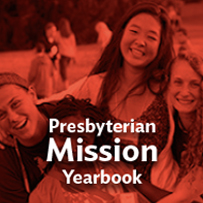October 20, 2019
“Beginning with John Calvin’s support of free schools, people of the Reformed tradition have always affirmed the value of education and its potential to transform lives and systems.” — PC(USA) Policy Statement “Loving Our Neighbors: Equity and Quality in Public Education”
 Presbyterians have always supported public education. Jesus calls us to love God with “heart, soul and mind.” Our Reformed tradition affirms education as one way we develop our mind and one way we love God. The PC(USA)’s most recent policy statement on public education stands in that tradition and recognizes “that quality public schools are essential to our society’s efforts to overcome poverty and address social inequality.” The policy statement states that “quality public schools offer a holistic education, one that equips our children to live both meaningful and productive lives. A quality public school … is a place where they learn to think critically and become effective citizens, where they gain an appreciation for the sweep of human history and for the arts. Public schools are one place where children and young people can learn about their own bodies, how to be healthy and stay fit.” The study acknowledges the role of private and charter schools while affirming that quality public schools impact most of our children. Loving our neighbor means loving our neighbors’ children and supporting the public schools, even if we do not have children attending those schools.
Presbyterians have always supported public education. Jesus calls us to love God with “heart, soul and mind.” Our Reformed tradition affirms education as one way we develop our mind and one way we love God. The PC(USA)’s most recent policy statement on public education stands in that tradition and recognizes “that quality public schools are essential to our society’s efforts to overcome poverty and address social inequality.” The policy statement states that “quality public schools offer a holistic education, one that equips our children to live both meaningful and productive lives. A quality public school … is a place where they learn to think critically and become effective citizens, where they gain an appreciation for the sweep of human history and for the arts. Public schools are one place where children and young people can learn about their own bodies, how to be healthy and stay fit.” The study acknowledges the role of private and charter schools while affirming that quality public schools impact most of our children. Loving our neighbor means loving our neighbors’ children and supporting the public schools, even if we do not have children attending those schools.
The Educate a Child Roundtable (which grew out of the Educate a Child, Transform the World initiative launched at the 221st General Assembly in Detroit in 2014) is working to encourage and resource Presbyterian congregations around issues related to public schools. The roundtable has written and approved the “Educate a Child Covenant.” It is in the process of developing resources. This covenant will be a way that congregations can publicly commit to actively supporting public education and become part of a network of congregations who share that commitment.
There are many ways that congregations can support public education, including recognizing and affirming educators and students in worship at the beginning of the school year, providing resources to teachers who purchase supplies with their own money, starting a before- or after-school learning center and supporting legislation that improves schools. On the presbytery level, committee member Renee Danyo reports that in 2018, the Presbytery of Detroit launched an Educate a Child Workgroup. The workgroup aims to network congregations within the Presbytery of Detroit to provide direct services and to advocate for public education. In October 2019, the workgroup hosted its first workshop to educate, encourage and support congregations to become active in building and fostering relationships with schools in communities with high poverty and advocate to support public education.
For more information on the Educate a Child Roundtable or Covenant, contact Alonzo Johnson at alonzo.johnson@pcusa.org or Dave Brown at dbrown7086@aol.com.
Rev. Dave Brown, Member of the Educate a Child Roundtable and Co-Author of the Public Education Policy Statement “Loving Our Neighbors: Equity and Quality in Public Education”
Revised Common Lectionary Readings for Sunday, October 20, 2019, the Twenty-Ninth Sunday in Ordinary Time (Year C)
First Reading Jeremiah 31:27-34
Psalm 119:97-104
Second Reading 2 Timothy 3:14-4:5
Gospel Luke 18:1-8
Today’s Focus: Educate a Child, Transform the World
Let us join in prayer for:
PC(USA) Agencies’ Staff
Sy Hughes, Presbyterian Mission Agency
Paul Huh, Administrative Services Group (A Corp)
Let us pray:
Gracious God, we are thankful for the teachers and the schools that helped shape us on our journey. We remember them in silence [pause]. Grant us wisdom and courage to engage our community and work for quality public education for all children. In Jesus’ name, amen.
![]() You may freely reuse and distribute this article in its entirety for non-commercial purposes in any medium. Please include author attribution, photography credits, and a link to the original article. This work is licensed under a Creative Commons Attribution-NonCommercial-NoDeratives 4.0 International License.
You may freely reuse and distribute this article in its entirety for non-commercial purposes in any medium. Please include author attribution, photography credits, and a link to the original article. This work is licensed under a Creative Commons Attribution-NonCommercial-NoDeratives 4.0 International License.